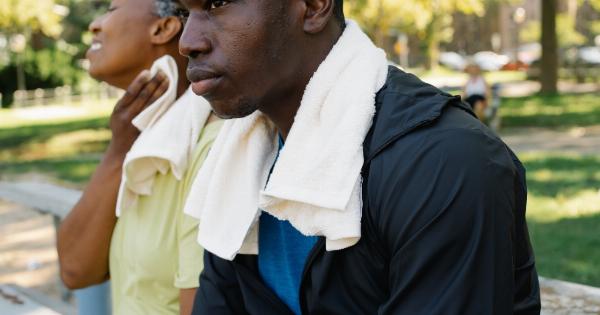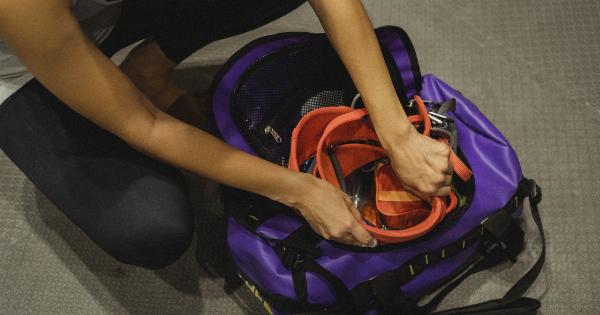When the summer heat hits, it’s important to be aware of the potential hazards and take the necessary precautions to stay safe. Hot weather can pose various risks to our health and well-being, from heat exhaustion to sunburns and more.
In this article, we will explore the essential information you need to know to protect yourself and your loved ones during hot weather conditions.
1. Heat Exhaustion vs. Heatstroke
Understanding the difference between heat exhaustion and heatstroke is crucial. Both conditions are caused by prolonged exposure to high temperatures and can be dangerous if not treated promptly.
Heat exhaustion symptoms include heavy sweating, rapid pulse, dizziness, headache, nausea, and fainting. If you notice any of these signs, move to a cool place, drink plenty of water, and rest.
If the symptoms worsen or last longer than an hour, seek medical attention immediately.
Heatstroke, on the other hand, is a life-threatening condition that requires immediate medical attention. Symptoms include high body temperature (above 103°F/39.4°C), confusion, flushed skin, rapid breathing, and a racing heart rate.
Call emergency services right away if you suspect someone has heatstroke and take immediate steps to cool them down while waiting for medical help.
2. Stay Hydrated
Proper hydration is essential during hot weather. Sweating causes the body to lose fluids, so it’s important to replenish them regularly.
Drink plenty of water even if you don’t feel thirsty, as thirst is not always an accurate indicator of dehydration.
Avoid caffeinated and alcoholic beverages, as they can increase dehydration. Opt for water, fruit-infused drinks, or natural fruit juices instead. Carry a reusable water bottle with you as a reminder to drink water throughout the day.
3. Dress Appropriately
Wearing the right clothing can make a significant difference in staying comfortable during hot weather. Choose loose, lightweight, and light-colored fabrics that allow air circulation and reflect sunlight.
Avoid dark-colored clothing, as it absorbs heat and can make you feel hotter. Wear hats with wide brims to protect your face and neck from direct sunlight, and don’t forget to apply sunscreen with at least SPF 30 before going outside.
4. Seek Shade and Limit Outdoor Activities
When the sun is at its peak and temperatures are soaring, it’s best to seek shade and limit your time spent outdoors. Plan any outdoor activities for the early morning or later in the afternoon when it’s cooler.
If you must be outside during hot weather, take frequent breaks in shaded areas and avoid direct sun exposure during peak hours, typically from 10 am to 4 pm.
Remember to bring a portable shade, such as an umbrella or canopy, to create your own shelter when shade is limited.
5. Use Cooling Techniques
Cooling techniques can help maintain a comfortable body temperature during hot weather. Take cool showers or baths, use damp towels on your body or neck, or place your feet in a basin of cool water.
Using fans or air conditioning indoors can also provide relief from the heat.
Additionally, try to avoid cooking with appliances that generate heat, and opt for lighter meals that require less cooking time. This will help maintain a cooler temperature in your living space and prevent overheating.
6. Check on Vulnerable Individuals
Hot weather can be particularly dangerous for certain individuals, including the elderly, young children, pregnant women, and those with underlying health conditions.
Check on your loved ones, friends, and neighbors who may be more susceptible to heat-related illnesses.
Ensure they have access to a cool environment, plenty of fluids, and are aware of the necessary precautions. Encourage them to seek medical advice if they experience any symptoms of heat exhaustion or heatstroke.
7. Be Aware of Heat-Related Illnesses
Heat-related illnesses extend beyond heat exhaustion and heatstroke. It’s important to be aware of other conditions that can be triggered or exacerbated by hot weather.
Skin-related issues, such as sunburns, heat rashes, and heat cramps, are common during hot weather. Apply sunscreen regularly, wear protective clothing, and stay in shaded areas to minimize the risk of sunburns.
If you notice any unusual skin rashes or feel muscle cramping, rest in a cool environment and seek medical advice if symptoms persist.
8. Keep Your Home Cool
Avoiding heat-related issues starts within the comfort of your own home. Follow these tips to maintain a cool living space:.
- Close windows and curtains during the hottest parts of the day to block out direct sunlight.
- Use fans or air conditioning to circulate cool air in your home.
- Keep windows open at night to allow for natural ventilation and cooler air.
If you don’t have access to air conditioning, consider visiting public places with air conditioning, such as shopping malls or public libraries, to escape the heat.
9. Heat and Medications
Some medications can increase your risk of heat-related illnesses or reduce your body’s ability to stay cool.
If you are taking any medications, especially those that affect your heart rate or blood pressure, consult with your doctor to understand how they may affect your tolerance to hot weather.
It’s crucial to follow your doctor’s advice and take any necessary precautions, such as adjusting your medication schedule or avoiding excessive heat exposure.
10. Prepare for Emergencies
Despite taking all precautions, emergencies can still occur. It’s important to be prepared for any situation.
Keep emergency numbers handy and create an emergency kit that includes essentials such as a first aid kit, extra water, non-perishable food items, and any necessary medications.
Stay informed about severe weather warnings, and have a plan in place for evacuation if needed. Being prepared can help minimize risks and ensure your safety during hot weather hazards.




























